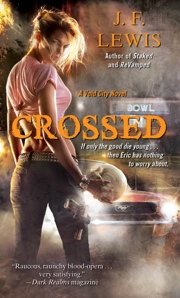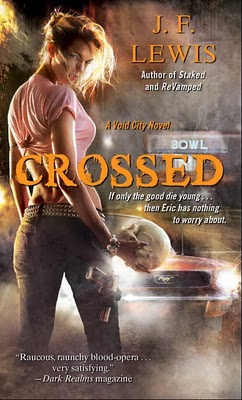by
J. F. Lewis
That’s not a typo.
It isn’t.
In the title, I didn’t mean synaptic failure (to which one may be prone after staying up too long writing… or playing Patapon). Synoptic failure is a personal writing challenge of mine. I describe Synoptic Failure as the singular inability to adequately describe one’s novel in an appropriate manner so as to convince an editor to buy the novel before the novel has been written.
There are ways around it (maybe), but none of them make things easy on the modern writer.
1) Write the novel first: This is what I have tended to do with the Void City series. The book is more easily converted to a synopsis after it’s done. (Though mine still stink.) In addition, if you can turn in the whole manuscript, you might be able to avoid having a bad synopsis torpedo your sale.
2) Cheat: This is a method I also use. Instead of actually providing a true synopsis, I write cover text with heavy spoilers. I give the beginning, middle, and end, but this approach is mainly about selling the feel of the piece and convincing people it is cool. I don’t know how effective or ineffective it is, but this is all I turned in for Void City, Book 4. So this method may only be truly helpful if you’ve already writing (and sold) three previous books in a vampire series.
3) Grow: I’m an organic/pantser/puzzler writer who is trying to incorporate more structure and planning into my writing. The fact is, it’s almost as easy to write a synopsis from a good outline as it is to write one from a completed manuscript. This does not change the fact that mine suck, but writing a synopsis is a different skill than novel writing and like any skill, the only way to get better at it is to practice. Lately, I’ve taken to trying to write synopses of books I’ve just read and enjoyed.
Are there any special tricks you use to turn out a good synopsis?













